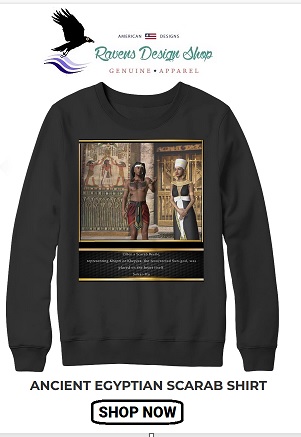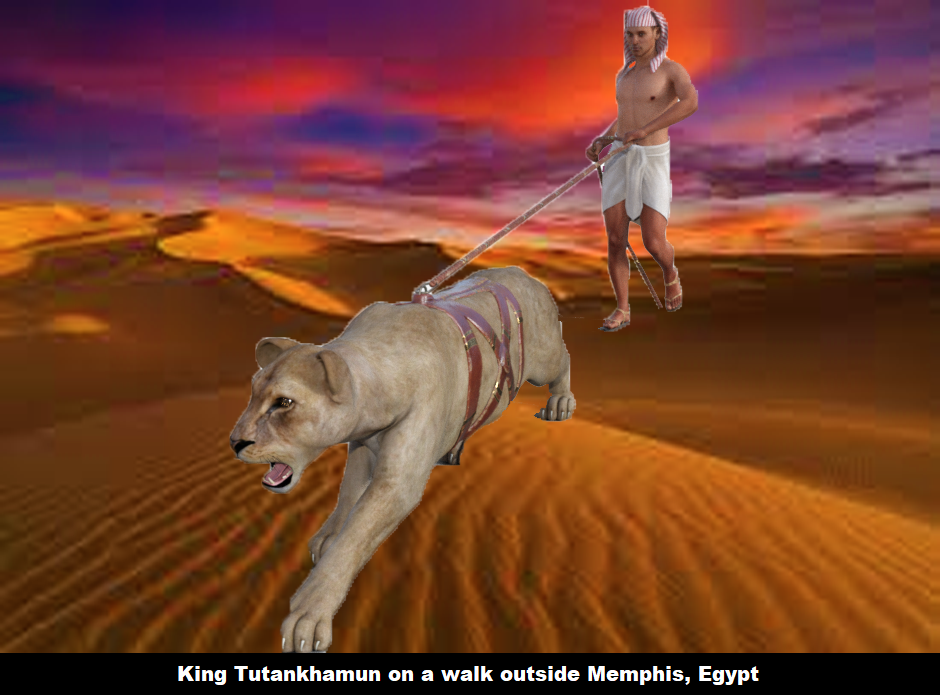King Tutankhamun had a great love for big cats, often taking time to walk his favorite domesticated lion. The lion was God's symbol depicting King Tutankhamun's strength and his mastery over the natural world.
King Tutankhamun was known for his love of big cats, and he often spent time with his favorite domesticated lion, whom he had named Amun. The lion was a symbol of the king's strength and his mastery over the natural world, and the two were inseparable companions.
One day, as the king and his lion were taking a walk in the desert, they came across a group of bandits who had been causing trouble in the region. The bandits were armed and dangerous, and they quickly surrounded the king and his lion, demanding that he hand over his valuables.
King Tutankhamun, however, was not easily intimidated. He stood tall and commanded his lion to roar, a sound that echoed across the desert and filled the bandits with fear. Amun growled and bared his teeth, his powerful muscles rippling beneath his fur.
The bandits were no match for the king and his lion, and they quickly fled, leaving behind their stolen loot. King Tutankhamun and Amun triumphantly returned to the palace, the king's pride in his companion evident in the way he stroked the lion's mane.
From that day forward, the king and his lion were known as a formidable pair, feared and respected by all who encountered them. Amun became a symbol of the king's strength and his ability to overcome any challenge, and the people of Egypt looked to their king and his lion as an example of true courage and bravery.
As for King Tutankhamun himself, he continued to walk with his beloved lion, relishing in the power and strength that he had gained through their partnership. For him, there was no greater joy than spending time with Amun, the lion who had become his closest friend and most trusted companion.

